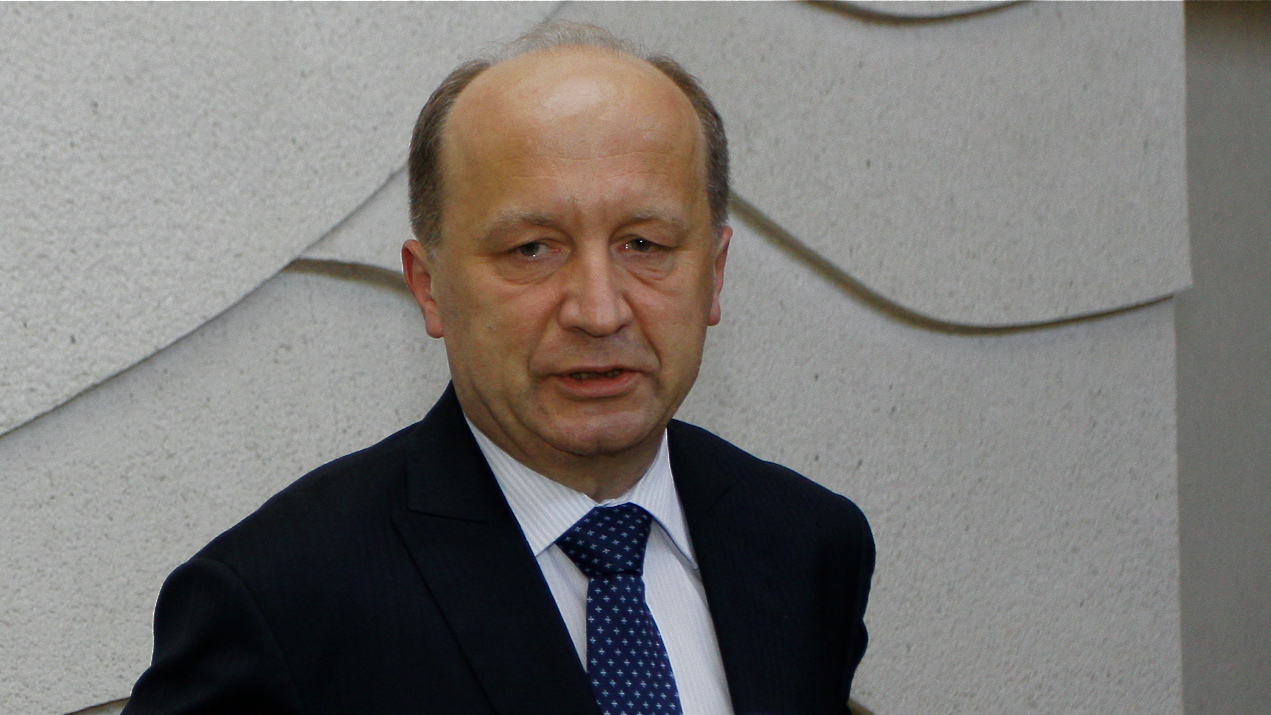
Prime Minister Andrius Kubilius has stepped up criticism of the Belarusian nuclear project over the past week. Photo by the Lithuanian State Chancellery.
VILNIUS — While the Lithuanian government has said previously that planned nuclear plants in Russia’s Kaliningrad exclave and Belarus would not affect its plans to replace Ignalina, Prime Minister Andrius Kubilius stepped up criticism of the Belarusian project over the last week.
The Belarusian media, which operates under heavy state censorship, took note of Kubilius’ position on Monday with BelaPAN’s report including a lurid quote from an unspecified Lithuanian source calling the nuclear power plant a “genocide against the Lithuanian people.” The plant will be built just 55 kilometers away from Vilnius and along the Neris River which flows down the middle of the Lithuanian capital.
While Kubilius did not go as far as comparing the Belarusian project to mass murder, the prime minister’s office did cite security concerns and echoed energy minister Arvydas Semokas’ assertion that that Russian and Belarusian plans won’t stop the Visaginas project.
“The prime minister is worried that the Belarusian plan to build a nuclear plant quite close to the Lithuanian border and the capital city Vilnius … basically yes, there is a concern about safety,” Kubilius’ spokesman Virginijus Valentinavičius told Baltic Reports. “At the same time Lithuania is quite sure that for the Belarusian side it would be much better to take part in the Lithuanian project to build a nuclear plant than to build their own.”
Belarus announced two weeks ago that it would like to help finance Lithuania’s soon-to-be-constructed floating gas terminal, which will liberalize both nations’ gas import possibilities.
Investment outlook “unaffected”
Valentinavičius said the Lithuanian government expects to find a strategic investor in the Visaginas project, something its been courting since the fall, by the end of the year and that the Russian and Belarussian nuclear plants would not deter investment.
“The prime minister noticed maybe jokingly that this epidemic of new nuclear plant projects around Lithuania started after Lithuania announced plans to build a nuclear plant,” Valentinavičius said. “I think by the end of the year we will know, it will be announced the name of the strategic investor.”
If Belarus did join the Visaginas project, it would be the fifth nation involved. Lithuania’s neighbors Poland, Latvia, and Estonia have each agreed to help fund the new plant to replace the Ignalina Nuclear Power Plant that closed at the end of 2009 as mandated by the European Union. Upon completion Visaginas will provide the bulk of Lithuania’s electricity needs. The first reactor is projected to be completed by 2018, much later than the Russian and Belarussian plants.
This article is free to view. To read Baltic Reports’ subscription-only articles, click here.












